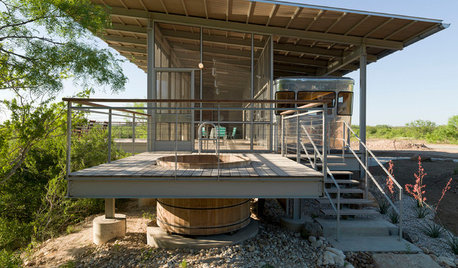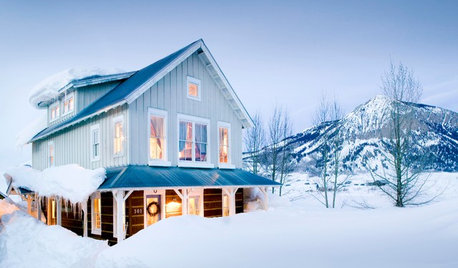Is organic the wave of the future, or woo-woo pie in the sky?
pbsjones
18 years ago
Related Stories

LIFERetirement Reinvention: Boomers Plot Their Next Big Move
Choosing a place to settle in for the golden years? You're not alone. Where boomers are going and what it might look like
Full Story
CONTEMPORARY HOMESHouzz Tour: Curves Ahoy! See a Unique Floating Home
It appeared on ‘Portlandia,’ but it doesn’t take a camera crew to see how special this home on a river is
Full Story
LIFEHouzz Call: How Are You Handling the Record-Breaking Cold?
Share your tales, strategies and photos for everything polar vortex
Full Story
SELLING YOUR HOUSEHome Staging to Sell: The Latest Techniques That Really Work
Get up to speed on the best ways to appeal to potential buyers through accessories, furniture, colors and more
Full Story
REMODELING GUIDES8 Lessons on Renovating a House from Someone Who's Living It
So you think DIY remodeling is going to be fun? Here is one homeowner's list of what you may be getting yourself into
Full Story
HOLIDAYSHouzz Call: Share Your Personal Holiday Traditions
What winter rituals mean the most to you and yours? Post your stories and pictures
Full Story
LIFEHard Winter? 9 Ways to Battle Cabin Fever
We know a lot of you are trapped where it just won’t stop snowing. Here are some ways to survive
Full Story
HOUZZ TOURSMy Houzz: Midcentury Modern Style Transforms a Vineyard Bungalow
Spectacular surroundings and iconic design inspiration meet in a major overhaul of a 1960s Ontario home
Full Story



mikkle
JAYK
Related Discussions
Done for sure now.
Q
UPDATE: WoW Thanks! I wanted That! # 10
Q
update: umteenth pp thread for july!
Q
Any plans for December in your small home?
Q
pickwick
UpstateNYgardener
sewnfool
username_5
mountain_curmudgeon
wayne_5 zone 6a Central Indiana
marshallz10
dchall_san_antonio
username_5
lazy_gardens
Kimmsr
mountain_curmudgeon
pnbrown
albert_135 39.17°N 119.76°W 4695ft.
swanz
dchall_san_antonio
pnbrown
vstech
mikkle
snakeoil
althea_gw
pnbrown
mountain_curmudgeon
ben78
snakeoil
mikkle
mikkle
pnbrown
althea_gw
UpstateNYgardener
snakeoil
dchall_san_antonio
snakeoil
mikkle
pickwick
pnbrown
althea_gw
snakeoil
Pudgy
althea_gw
peter_6
mountain_curmudgeon
evenhand
JAYK
username_5
althea_gw
peter_6
trish_in_georgia